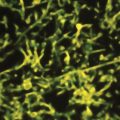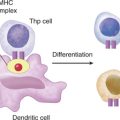CASE 29
PD is a 38-year-old woman whom you see in follow-up for investigation of abnormal results of liver function tests and vague chronic fatigue. During an otherwise uneventful pregnancy, 2 years earlier, some transient moderate increase (twofold to threefold) in liver enzymes was noted, with simultaneous complaints of abdominal cramps and bloating.
QUESTIONS FOR GROUP DISCUSSION
RECOMMENDED APPROACH
Implications/Analysis of Family History
No family history of inflammatory bowel disorders was noted.
Implications/Analysis of Clinical History
Infections
We are told that a previous infection with C. difficile has been eradicated; moreover, C. difficile infection is not associated with liver abnormalities. Infections would be a consideration for the diarrhea and altered liver function tests, particularly in immunocompromised individuals, but T cell and B cell numbers and function were normal. Tuberculosis, amebiasis, and schistosomiasis could all fit this picture (of gastrointestinal complaints and liver abnormalities), but the chronic course, lack of travel history, and negative stool cultures reduce their likelihood. Bacterial overgrowth in the upper intestine is a plausible consideration.
Disorders That Present Similarly
Intestinal malignancy could present this way, although again the lengthy history suggests this is an unlikely explanation. Cystic fibrosis would certainly fit this picture, although such a late presentation would be extraordinary. Primary biliary cirrhosis, an idiopathic disease generally affecting females of this age group, is a rare autoimmune-type disorder that fits this picture; in a male, sclerosing cholangitis is a disorder also associated with idiopathic inflammation of the bile ducts. A liver biopsy should be ordered to rule out this option (see Additional Laboratory Tests).
Implications/Analysis of Laboratory Investigation
Blood work should include elimination of HIV infection and simple tests to exclude generalized immunodeficiency (e.g., T cell and B cell numbers/function; serum immunoglobulin). Given the chronic nature of the process, the evidence for malabsorption symptoms, and the relapsing/remitting nature of the disease, an intestinal biopsy is warranted (see Additional Laboratory Tests).






